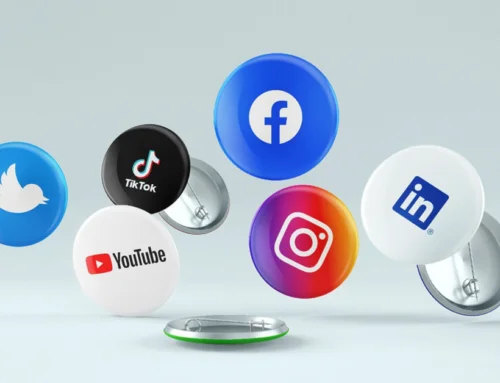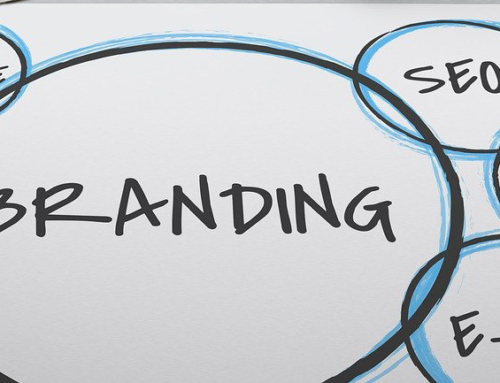Summary
Here's a guide to finding the right trade shows and events to connect with your business prospects.

Connecting with potential clients and partners is crucial for business growth and success. One effective way to achieve this is by attending trade shows and events. These gatherings offer unique opportunities to network, showcase your products or services, and stay updated on industry trends. Here’s a comprehensive guide on how to find the right trade shows and events to connect with your business prospects.
1. Identify Your Goals and Target Audience
Before you start searching for trade shows and events, it’s important to define your goals and understand your target audience. Are you looking to generate leads, build brand awareness, or launch a new product or service? Knowing your objectives will help you choose events that align with your business needs. Additionally, understanding your target audience will ensure you attend events where your potential clients and partners are likely to be present. Everyone is not your target audience. Consider the industry, job title and location of your primary buyer.
2. Research Industry-Specific Events
Start by researching events that are specific to your industry and that attract your target audience. You can use industry publications, websites and associations to find information about upcoming trade shows and conferences. For example, if you’re in the tech industry, websites like TechCrunch and industry associations like the Consumer Electronics Show (CES) can be valuable resources.
3. Utilize Online Event Directories
Online event directories are excellent tools for finding trade shows and events. Websites like Eventbrite, Trade Show News Network (TSNN), and 10times offer comprehensive listings of events across various industries. You can filter your search by location, date and industry to find events that match your criteria. These platforms often provide detailed information about each event, including exhibitor lists, attendee demographics and registration details.
4. Leverage Social Media
Social media platforms are powerful tools for discovering and staying updated on trade shows and events. Follow industry influencers, associations and event organizers on platforms like LinkedIn, X (formerly Twitter) and Facebook. These accounts often share information about upcoming events, early bird discounts, and networking opportunities. Additionally, joining industry-specific groups and forums can help you connect with like-minded peers who may recommend valuable events.
5. Attend Virtual Events and Webinars
In recent years, virtual events and webinars have become increasingly popular. These online gatherings offer the convenience of attending from anywhere and often feature industry experts and thought leaders, sometimes for a reduced rate since the speakers avoid travel costs. Platforms like Zoom and Microsoft Teams host a variety of virtual events that can help you connect with business prospects, although access to some of these features may require you to upgrade the type of account you have like upgrading to Zoom Events for $164/month (prices subject to change). Keep an eye out for virtual trade shows, conferences, and networking sessions that align with your goals.
6. Network with Industry Peers
Networking with industry peers can provide valuable insights into the best trade shows and events to attend. Reach out to colleagues, mentors and business partners to ask for recommendations. They may have firsthand experience with events that have been particularly beneficial for their businesses. Additionally, attending smaller, local events can help you build relationships with peers who can introduce you to larger, more impactful trade shows.
7. Subscribe to Industry Newsletters
Many industry associations offer newsletters that include information about upcoming trade shows. Subscribing to these newsletters can keep you informed about important dates, registration deadlines and event highlights. For example, if you’re in the healthcare industry, subscribing to newsletters from organizations like the American Medical Association (AMA) or Healthcare Information and Management Systems Society (HIMSS) can be beneficial.
8. Evaluate Event Quality and ROI
Not all conferences and events are created equal. It’s important to evaluate the quality of an event before committing your time and resources. Look for events with a strong reputation, high attendance rates and positive reviews from past participants. Additionally, consider the potential return on investment (ROI) by assessing factors such as the registration cost, travel and hotel expenses (if the event is out of town) and the quality of networking opportunities. Again, attending (or exhibiting at) a conference may be in your budget, but if it doesn’t connect you to your potential buyers, it’s not a good choice.
9. Plan and Prepare in Advance
Once you’ve identified the trade shows and events you want to attend, it’s crucial to plan and prepare in advance. Register early to take advantage of early bird discounts and secure your spot. Create a detailed plan outlining your objectives, key contacts you want to meet, and materials you’ll need, such as business cards, brochures, and product samples. For instance, you can look at the exhibiting organizations to see which could be good customers or strategic partners. Look for smaller breakout sessions on topics that interest you. Arrive early and network with those in the room since they have similar interests as you. Preparing in advance will help you make the most of your time at the event and maximize your networking.
10. Follow Up After the Event
Attending a trade show or event is just the beginning. Following up with the contacts you made within a week is key for building lasting relationships and converting leads into clients. I recommend emailing your new prospects, mentioning what you discussed (personal or business) and then offering to help them through your products or services. If you can, share a free piece of content like a blog post relevant to their needs or a case study to help them and highlight your expertise. Connect with these people on LinkedIn and schedule meetings to continue the conversation. Keeping the momentum going after the event will help you solidify the connections you made and turn them into valuable business opportunities.
It’s a powerful strategy to connect with business prospects and grow your network when you find trade shows that align with your target audience. By identifying your goals, researching industry-specific events, leveraging online directories and social media, and preparing in advance, you can make the most of these opportunities. Which events will you attend or exhibit at this year? If we can help you develop an event strategy and find trade shows that are best for growing your business, contact us. Happy networking!











Leave A Comment